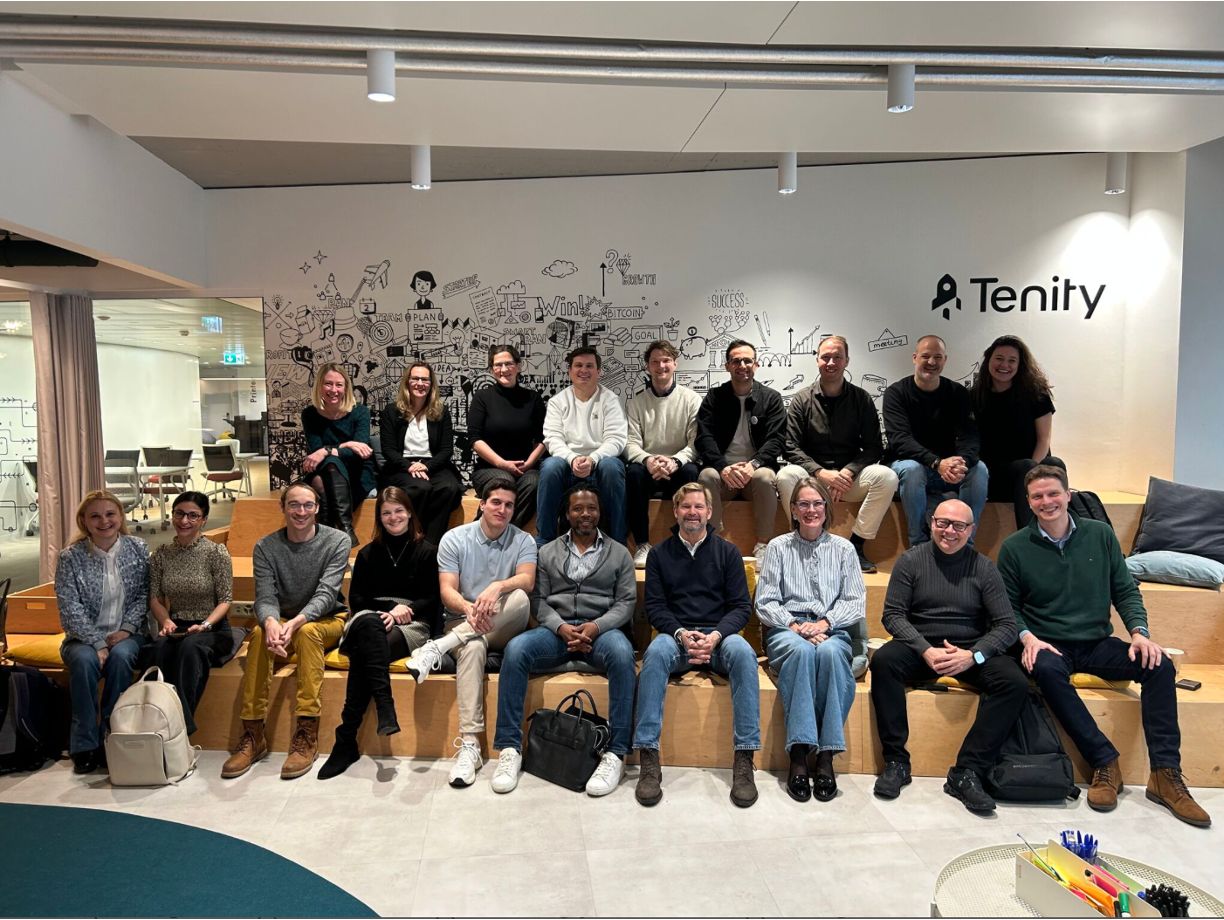Precision medicine promises to advance cancer treatment by using the unique genetic makeup of each patient’s cancer to tailor and target therapy. For patients with rare cancers that are difficult to diagnose and treat, precision medicine offers hope for faster, more effective care.
At Gena, we are on a mission to make precision and personalised medicine easy to understand and accessible for rare cancer patients.
In this article, we will talk about some of the biggest challenges in the world of precision medicine and a path forward.
The limitations of Precision Medicine
Precision medicine, often used interchangeably with personalised medicine, holds a lot of promise. Yet, researchers, health systems, and society still face several challenges that they need to understand and address. Recognising these limitations highlights the work needed to unlock the full potential of precision medicine. Consequently, these hurdles are particularly evident for patients with rare cancer, where a lack of data can complicate diagnosis and treatment
Access to Precision Medicine
To make healthcare fair, it’s vital that everyone can access the same care, no matter where they live or where they were born.
At present, precision medicine isn’t widely available and this affects how easy it is for people to access it. Moreover, advanced testing facilities and hospitals, essential for precision cancer treatment, are typically located in larger cancer centres within cities and urban areas. A recent study in the United States found that patients in poorer, rural areas were less likely to receive precision medicine tests for lung cancer.
Many patients who live in remote or rural areas face barriers like transport, cost, time, and disabilities, preventing them from regularly traveling to major treatment centers for their therapy. This means that they miss out on treatments that could alter the course of their condition.
Clinical trials share a similar problem. Major hospitals and specialist (tertiary) centres conduct many advanced clinical trials in precision oncology, limiting participation for patients unable to travel to or stay near these locations.
Improving access will require changes in healthcare delivery, ensuring that rural and underserved populations are not left behind.
Representation
Researchers still need to learn much about the molecular underpinnings of various cancers, especially in diverse populations. However, precision medicine research has largely excluded ethnic diversity.
It is estimated that up to 96% of participants in precision oncology studies are from European ethnic groups, while other ethnicities are under-represented. This is also the case in clinical practice settings with health records showing that white patients are nearly twice as likely as black patients to receive genetic testing for lung cancer.
Prejudice and racial bias in the healthcare system create complex reasons behind these figures, affecting how different groups engage with medical research and new or experimental treatments.
Distance to treatment, lack of transportation, and lower income disproportionately affect ethnic minorities, preventing them from accessing treatment or participating in research.
Targeted efforts to include diverse populations in research and clinical trials will ensure precision medicine works for everyone.
Cost of Precision Medicine
By avoiding ineffective treatments, precision medicine reduces healthcare costs, but it can also increases expenses for individuals and health services.
The high cost of precision medicine testing influences whether health services can provide it or if individuals must pay. Precision medicine treatments remain costly and often unavailable on the NHS. There are schemes to help patients access new or experimental treatments that aren’t available as part of standard care, but in some cases, patients may need to pay for their treatment.
The financial burden of precision medicine testing and any related treatment also affects access and representation.
As researchers publish more on precision medicine, organisations like NICE and the NHS will gather insights to decide whether to offer precision medicine tests and treatments to a wider group of people. A recent study looking at the efficacy of Whole Genome Sequencing (WGS) within the West Midlands Genomic Medicine Centre (WMGMC) saw that 59.2% of patients in the study had clinical recommendations made based on their WGS results.
However, the study noted that while WGS can identify potential targets, there was a lack of available therapies for those targets, meaning that therapeutic followup remained low. Partnerships between governments, healthcare providers, private companies and pharmaceutical companies can reduce costs and make tests and therapies accessible.
Complexity of Precision Medicine
Precision medicine is based on a straightforward idea: if we know the genetic cause of the disease, we can treat it more effectively.
By finding the genetic mutations responsible for a person’s cancer, doctors can target them with specific therapies, like aiming at a bullseye.
However, cancer is a complex condition, and these mutations can change and evolve. Tumours can vary widely even within the same person (tumour heterogeneity), making them harder to target consistently.
Cancer isn’t a single process. It involves many different genes, cells, and proteins. This means having a single “target” often isn’t enough and cancer treatment can become complicated.
While precision medicine holds promise, the dynamic nature of cancer limits how easily we can currently apply it. Research has shown that precision medicine is a powerful tool, but it will require continuous research to generate more data and potential therapies to keep up with cancer.
As our understanding of cancer complexity grows, developing new models and tools will help clinicians, patients and carers navigate these challenges.
Considering precision medicine treatments?
It's crucial to be familiar with the most common cancer terminology. Download our FREE guide here.
Ethical and Data Concerns
Healthcare providers should always keep your information private, secure, use it responsibly, and ensure it is consent-driven.
The use of technology and artificial intelligence in precision medicine means that health data about patients, their background, their genetic data and their disease needs to be collected and stored. This raises important questions about the privacy and security of this information.
Researchers and companies can use large databases of patient information to help develop new tests and lifesaving treatments. However, ethical considerations about how they protect this data and whether they can profit from it are questions that still require full answers.
We are committed to maintaining the highest standards in data protection, security, and governance. We ensure that healthcare providers and biopharma partners only receive anonymised, secured patient data, and most importantly, we obtain the patient’s consent before sharing it.
Gena’s other key guiding principle is that we only collect the minimum amount of data required to meet requirements of the use case. If you want to see what data we may collect please see our privacy policy. We may share this data for two reasons: 1) If there’s a relevant treatment option available to the patient and they want to access it, or 2) to be used to inform drug research and development with verified academic institutions or life sciences partners. To ensure we minimise the cost of accessing our platform for individual users, Gena may have commercial arrangements in place with these verified partners.
The Future of Precision Medicine
The future of precision medicine in oncology holds transformative potential, with several key advancements expected in the next five years. The integration of ‘multi-omics’ data will provide a deeper understanding of each patient’s cancer, allowing for highly tailored treatment strategies. Advancements in liquid biopsy technology will enhance early detection and monitoring of cancer by looking for circulating tumour DNA in the blood stream. Additionally, the expansion of targeted therapies and immunotherapies will introduce more tumour-agnostic treatments that target molecular alterations regardless of cancer type.
Artificial intelligence (AI) and machine learning will play pivotal roles, helping to analyse complex data and uncover novel biomarkers, streamlining the drug development process. With AI support, clinical trial design is also evolving, with adaptive and basket trials allowing more rapid testing of therapies across diverse cancer types. Broader use of whole-genome sequencing (WGS) and expanded international data-sharing efforts will contribute to more comprehensive cancer profiling.
Despite the promise, challenges remain in implementation, data interpretation, and equitable access, yet these advances are set to make cancer care more personalised, effective, and accessible. If you want to read more about precision medicine, read our recent article on the promise of precision medicine.
With ongoing research, collaboration, and a commitment to equal healthcare, precision medicine has the power to change lives. At Gena, we believe that as science evolves, access to these life-changing treatments will too. We are committed to making these treatments accessible and offering a path forward for people facing a rare cancer diagnosis.
If you’d like to find out more about the Gena story and mission click here.
Remy is a dedicated physician and medical writer. With over a decade of clinical experience, he has worked globally – from clinics in South Africa and Brazil to research collaborations with universities in London and Cape Town. Remy completed his Medical training at University College London.
A seasoned medical writer and published researcher, Remy’s work has appeared in prestigious journals such as Nature and magazines like Woman & Home. He has collaborated with the Bill and Melinda Gates Foundation the World Organization of Family Doctors (WONCA) and Johnson & Johnson.
Remy’s mission at Gena Health is a personal one. He was inspired to join Gena by his cousin’s battle with neuroblastoma, a rare cancer she fought bravely before passing away at just 16. He is committed to educating people on issues related to rare or hard-to-treat cancers, and making the world a kinder and more hopeful for patients and their families facing similar challenges.



